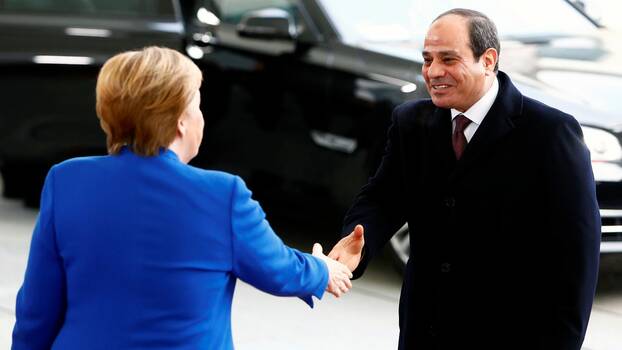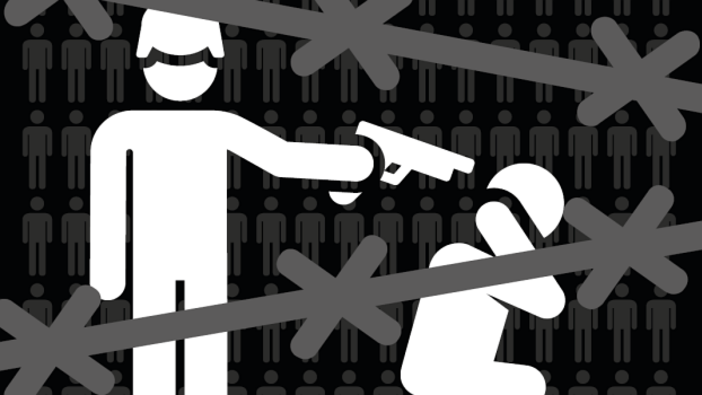
It has been ten years since strikes and mass demonstrations swept dictators from office in North Africa. When I travelled to Egypt in September 2012, I felt how the revolutionary experience had given people new hopes for profound social change.
Christine Buchholz is a member of the party executive committee of Die Linke, a member of parliament for the Die Linke parliamentary group, and represents the parliamentary group in the Defence Committee of the German Bundestag.
In May 2011, even Chancellor Merkel said in the Bundestag that it was “a historic European obligation to stand by the people who are taking to the streets today in North Africa and in parts of the Arab world”.
At no time did the German government stand by the people in North Africa and the Arab world. On the contrary, neoliberal programmes pushed through by the German government within the framework of the EU’s neighbourhood policy destroyed jobs and social security systems, fuelling mass discontent in the region. In the name of “securing stability” the German government supplied despots like Hosni Mubarak with weapons and training.
After the coup of Abd al-Fattah al-Sisi, the situation in Egypt today is more dire than under Mubarak: 60,000 political prisoners of all political stripes are said to be in prison, torture is occurring daily. In the Sinai Peninsula, the civilian population is victimized by a brutal “war on terror”. Despite this, the German government maintains good relations with the Egyptian military dictatorship. At the end of last year, the former Egyptian ambassador received the Federal Cross of Merit and Sisi is a regular guest in Berlin.
Together with other members of parliament, I issued an appeal in solidarity with political prisoners in Egypt, calling on the German government to stop supporting the Egyptian military dictatorship. The Foreign Office felt compelled to respond and admitted: “The repression of opposition activists, civil society and the free press does … not contribute to Egypt’s stability”. Nevertheless, it concluded, cooperation will be continued as it sees Egypt as a “regional actor with influence on stability in the region”, and is thus an important partner for the German government.
Stability for whom and for what? Egypt’s energy sector is an important market for German companies. As recently as January, Siemens signed a billion-dollar deal with the Egyptian government for the country’s first high-speed train network. Another reason is the fight against refugees. Egypt has hermetically sealed its maritime borders and is thus a prime example of the inhumane politics of European migration defence. The German government justifies the bilateral security agreement, under which security forces are trained and equipped with security technologies, with the joint “fight against terror”. Last year, Egypt was the number-one recipient of German war weapons exports.
Egypt is involved in the devastating war in Yemen alongside Saudi Arabia and supports General Haftar’s government in Libya. In addition, Sudan and Egypt are currently deepening their military cooperation, which threatens to have massive effects on the region in light of the tensions with Ethiopia over the Nile Dam and military clashes on the Sudanese-Ethiopian border.
In Sudan, too, the German government has for years supported dictator Omar Al-Bashir. In return he has deployed his notorious Janjaweed militia—now called Rapid Support Forces—as border troops. Now, the German government supports the transitional government, within which the Rapid Support Forces play a dominant role—again in the name of “stability”.
In Egypt, Sudan, and elsewhere, the causes of the revolutions have not been eliminated—and resistance is forming despite massive repression. Solidarity with the movements in the region means: no to the neoliberal economic policy of the German government, no to the arming of dictatorships under the guise of “stability”, no to the European border and migration regime, and no to the so-called “war on terror”.
